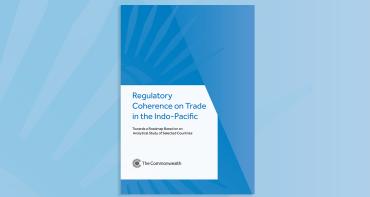A national e-commerce strategy launched this week in Yaoundé aims to help Cameroonians take advantage of opportunities offered by the digital revolution.

A national e-commerce strategy launched in Yaoundé aims to help Cameroonians take advantage of opportunities offered by the digital revolution.
The strategy was prepared for the government of Cameroon with Commonwealth support, facilitated by the Ministry of Commerce.
In a ceremony held yesertday, Minister of Commerce Luc Magloire Mbarga Atangana called for the support of both private and public sectors to help facilitate its successful implementation.
Cameroon, as the largest market in Central Africa, has a tremendous growth potential to become a leading player in the e-commerce space in the region.
The country already has in place a mix of policies, laws and regulations that directly or indirectly relate to e-commerce. If fully implemented, the new strategy will enable the government to identify any gaps that hinder growth in the sector, and make recommendations for fast-tracking reforms.
The aim is to enhance opportunities for growth in digital trade and boost participation of Cameroonian enterprises in regional and global e-commerce value chains.
Commonwealth Senior Director for Trade, Oceans and Natural Resources Paulo Kautoke said: “E-commerce is widely recognised as an important tool for innovation, competitiveness, job creation and growth. It presents a huge potential for entrepreneurs and small and medium enterprises from developing countries such as Cameroon to expand their market reach and make their goods and services available to overseas buyers though digital platforms.”
At present, e-commerce is primarily driven by consumers using mobile phones and tablets to buy products online and many small enterprises are still limited by a lack of access to the technology required.
Increasing the capacity of these small and medium size enterprises (SMEs) will have a direct impact on their ability to expand their business, thereby growing the economy, creating jobs and increasing household income.
The development of the strategy was based on the assessment of the current maturity and readiness of e-commerce in the country, benchmarked against e-commerce ecosystems in more developed and matured markets in Africa and Asia.



